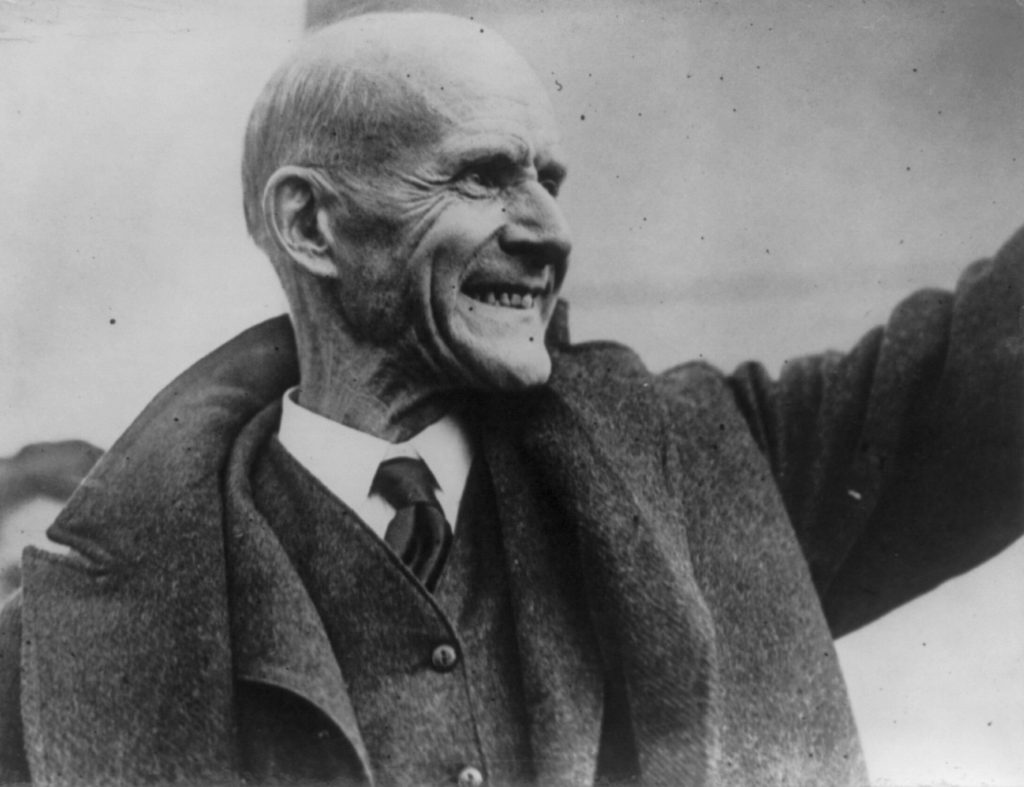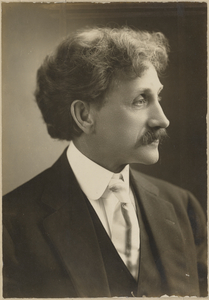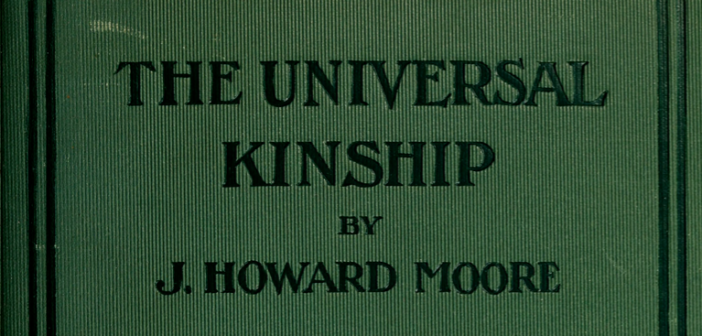I was excited to read The Universal Kinship, a 1906 book by John Howard Moore, which argues that the ethical implication of Darwinism is some form of animal liberation. Unfortunately, the text is marred by the pseudo-scientific racism that seems to have been popular at the time.
My interest primarily stemmed from Eugene Debs’ praise for the book. “It is impossible for me to express my appreciation of your masterly work,” the labor leader was quoted as saying in advertisements for the text. “It is simply great, and every socialist and student of sociology should read it. I have carried it in my grip over the past few thousand miles and its essence is in my heart.”

Way back when, I edited a blog called Species and Class, which sought to make connections between the animals’ and workers’ movements. I’d never come across anything to suggest Debs had progressive views about nonhumans. Sure, he recognized his connectedness with all living beings, in a famous statement to the court after his conviction for violating the Sedition Act. But I assumed that was a meaningless platitude.
I’m still not sure about Debs’ species politics. However, I can say The Universal Kinship is an animal-liberationist book. At times, Moore seems oddly positive about the transformations wrought by domestication. He rhapsodizes about the temperamental superiority of dogs over wolves, as an example. But the overall thrust of the text is clear.
For instance, Moore writes: “The creophagist [someone who eats flesh]and the hunter exemplify the same somnambulism, are the authors of the same kind of conduct, and belong literally in the same category of offenders, as the cannibal and the slave-driver. To take the life of an ox for his muscles, or to kill a sheep for his skin is murder, and those who do these things or cause them to be done are murderers.”
Moore argues humanity should treat animals according to the Golden Rule. He encourages readers to imagine how their perspective would change if there were a more dominant species on the planet than Homo sapiens. Moore clearly sees animal rights as a worthy complement to abolitionism, women’s suffrage and socialism.

“All beings are ends; no creatures are means,” he says. “The Life Process is the End — not man, nor any other animal temporarily privileged to weave a world’s philosophy. Nonhuman beings were not made for human beings any more than human beings were made for nonhuman beings.”
Unfortunately, as I mentioned before, there’s a passage filled with racist social Darwinism to match every progressive sentiment. Moore refers to Aryans as incomparable. He gives serious consideration to a biologist who believes that if black and white people were snails, they’d be classified as different species.
Moore frequently suggests Africans are evolutionarily closer to other primates than Europeans are. “The anthropoid races, in the shape of their heads and faces and in the general form and structure of their bodies, and even in their habits of life, resemble in a remarkable manner the lowest races of human beings,” he writes. “This resemblance is recognized by the negro races, who call the gorilla and chimpanzee ‘hairy men,’ and believe them to be descendants of outcast members of their own species.”
One must assume this pseudo-scientific racism was common at the time. After all, the text was endorsed by a number of notable progressives, besides Debs. In the same advertisements, authors Mark Twain and Jack London gave positive testimony about the book. Animal-rights pioneer Henry Salt hailed it as best anti-speciesist text he’d ever read.
Featured image: the cover of John Howard Moore’s The Universal Kinship. Public domain.





